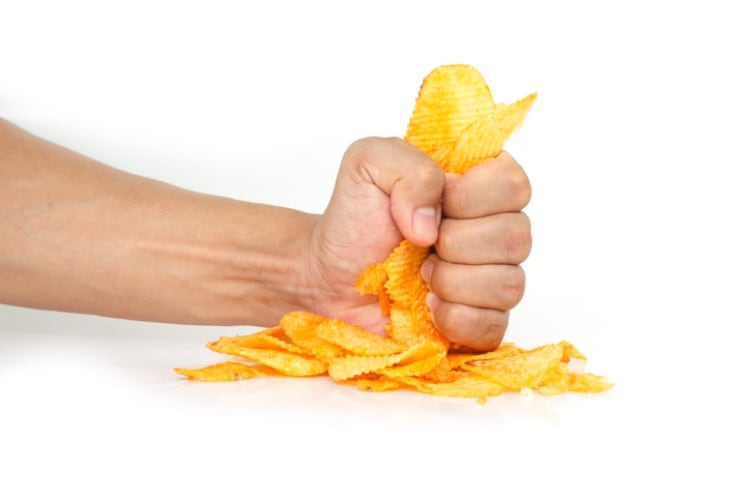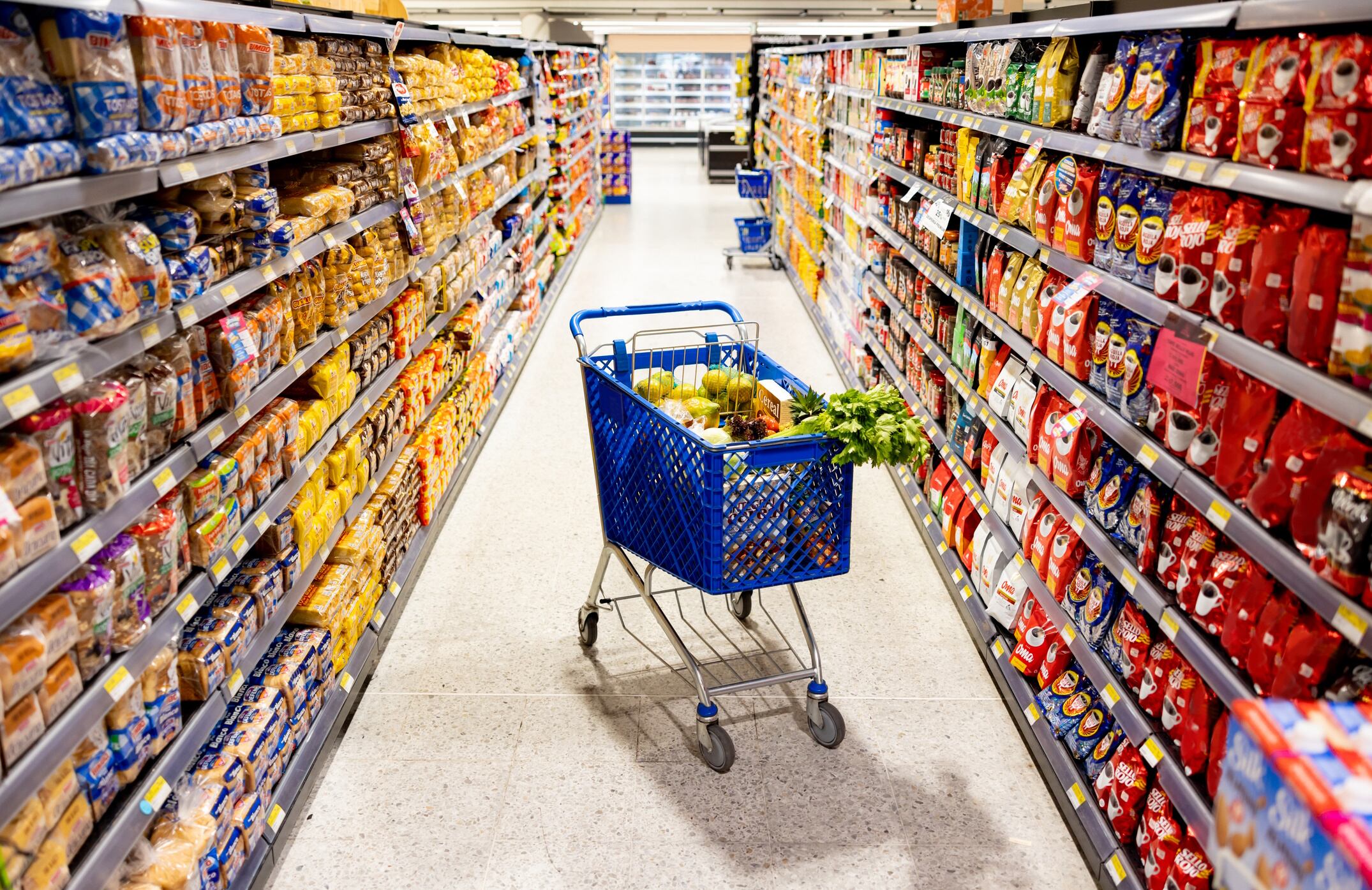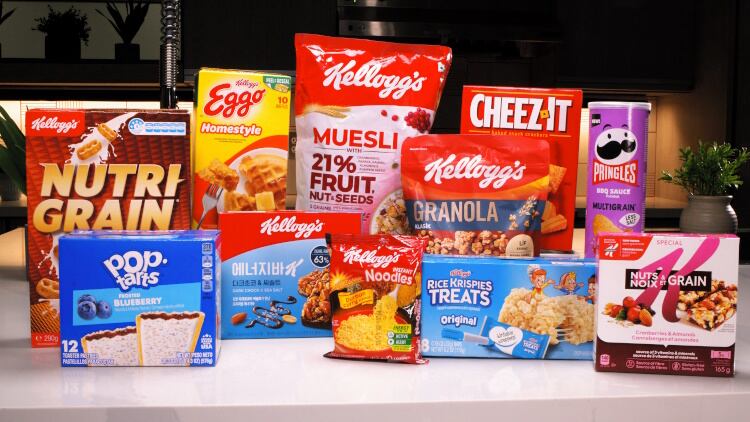The European Commission is looking into opening a preliminary review into Mars’ planned acquisition of Kellanova.
This escalation means regulators believe there is a ‘real risk’ the deal may significantly reduce competition in several key categories, including savoury snacks, breakfast foods and frozen ready-to-eat meals.
From the outset, the $36 billion tie-up between Mars and Kellanova looked like a match made in snacking heaven. Pringles, Pop-Tarts, Cheez-It and Eggo would join forces with M&M’s, Snickers and Skittles to create what could arguably become the world’s most powerful snacking portfolio. But as the EU digs in for a deeper probe, the reality is setting in: Mars may not get the global snacking powerhouse it bargained for.
The biggest immediate threat? The real possibility that Mars will be forced to sell off chunks of its or Kellanova’s snack portfolio to appease regulators.
Possible divestiture targets include Pringles in Europe, parts of the Eggo or Cheez-It lines or overlapping snack bar SKUs. If these assets create competitive overlap, they could derail the deal unless Mars is willing to let them go.
Phase II reviews are rare and serious. They indicate that the initial Phase I review - usually conducted over 25 working days - uncovered issues too complex to resolve with small fixes. A Phase II means a much deeper 90-working-day analysis, competitor consultations and potentially structural remedies. However, according to Julian Wild, food industry analyst and director of Wilkin Chapman Rollits, given the size of the deal an antitrust investigation was inevitable.
“It seems certain that the competition authorities will require action to get this deal through and this usually involves the divestment of assets in categories where concentration is excessive,” Wild told Food Manufacture.
Why is the EU concerned?

Firstly, portfolio dominance. Mars already dominates global confectionery and pet food. Adding Kellanova’s household snack brands would give it enormous leverage over retailers, enabling cross-category bundling that could push smaller competitors off shelves.
Second, retailer pushback. While the Commission hasn’t named specific grocers, several large European supermarket groups submitted formal concerns during the Phase I review, warning the merger could limit product choice and inflate prices.
And third, a lack of proactive remedies. Mars failed to submit remedies by the EU’s 18 June deadline. Whether this was a strategic gamble or a show of confidence, it gave the Commission no choice but to escalate.
The timing couldn’t be worse. The original merger agreement – inked in August 2024 – targeted a mid-2025 closing. Under the deal terms, both sides must secure US and EU approval by 13 August 2025. If they don’t, either party can walk away; however, the agreement does allow for two extensions of up to six months each if all other closing conditions have been met, apart from the regulatory approvals. That means while the pressure is on, the door remains open for more time. unless both agree to extend.
One of the biggest sticking points is that any forced divestitures could undermine the very logic of the deal. If Mars has to sell Pringles or major snack assets in Europe, it loses the scale and synergy it aimed to gain. Worse, it muddies global brand alignment and introduces operational complexity.
Then there’s the money. Mars raised approximately $26 billion through new bond issuance and tapped a $29 billion bridge loan to finance the acquisition – making this one of the largest debt-funded deals in consumer goods history. Credit ratings agency S&P has already downgraded Mars’ outlook, citing concerns over the debt load. If the deal drags, those concerns will multiply.
Reputational damage is also likely should the merger collapse. For Mars, walking away from the biggest snack deal in decades would be seen as a major strategic misfire. For Kellanova - spun off from Kellogg’s in 2023 to pursue growth through snacking independence - it would cast doubt on its long-term viability as a standalone player. With Mars potentially out of the picture, would another suitor emerge?
Don’t count the deal out yet

Industry insiders caution against writing off the merger too soon and for good reason.
Mars has a history of completing large deals – including its 2008 acquisition of Wrigley – and may be willing to jettison certain snack brands to close this one.
The US Federal Trade Commission has also yet to voice opposition, indicating that regulatory pushback might be limited to Europe.
The wider food industry context matters, too. With margins under pressure, private label surging and inflation reshaping household budgets, scale is king. Consolidation is the name of the game. This deal is part of that trend.
And there are precedents. When Mondelez acquired Clif Bar in 2022 and when Nestlé restructured its ice cream operations in 2019, both companies managed to strike targeted divestitures to get the green light.
If this deal does implode, the consequences will ripple far and wide. Consolidation momentum will slow, particularly across multi-category food manufacturers. Mid-size brands may become the next M&A targets as companies pivot to lower-risk bolt-ons. And regulators – emboldened by stopping a high-profile deal – may take a harder line on future mergers.
So, is the Mars-Kellanova merger at risk of collapsing?
Yes, but not inevitably. The EU’s Phase II probe has undoubtedly raised the stakes. But if Mars offers meaningful concessions before summer’s end, the deal may still cross the finish line.
If not, the world’s biggest snack aisle mash-up might just be left sitting on the shelf.




